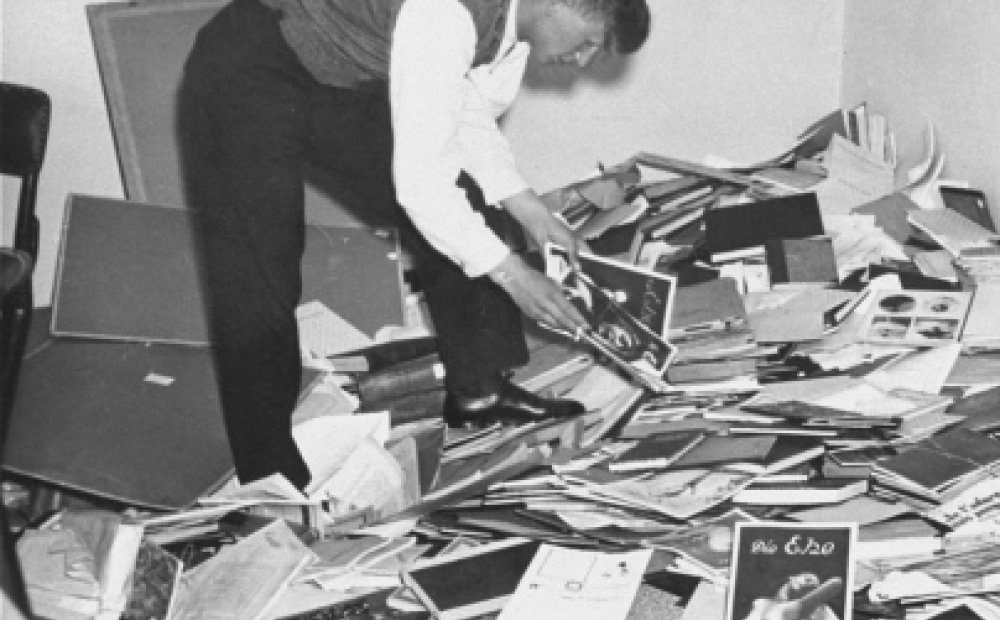Conflict and Cultural Destruction: Why Totalitarian Regimes Seek to Destroy Historical Memory

Evoking memory of the Nazi onslaught on cultural icons, the Taliban’s destruction of the Bamiyan statues and ISIS's pillaging of pre-Islamic sites has horrified contemporary observers and raised new concerns about the ways certain regimes seek to destroy historical memory. At the same time, new narratives of cultural persistence and survival are emerging, such as Romanian efforts in the Cold War to circumvent censorship through theatre, or contemporary ways to counter hardline censorship of Persian literature in Iran. This expert panel will analyze the causes and broader consequences of demolishing culture and heritage and the challenges it poses in today’s world.
The panel will be followed by the opening of an art exhibition entitled “Last Folio: A Photographic Memory,” which documents books and buildings of cultural significance destroyed in Slovakia during the Holocaust. A short film documenting the origins of this exhibition will open the discussion at 4:30pm.
C-SPAN video coverage of the event is available here.
Speakers

Executive Director, Bucharest Inside the Beltway

Hosted By

Global Europe Program
The Global Europe Program is focused on Europe’s capabilities, and how it engages on critical global issues. We investigate European approaches to critical global issues. We examine Europe’s relations with Russia and Eurasia, China and the Indo-Pacific, the Middle East and Africa. Our initiatives include “Ukraine in Europe”—an examination of what it will take to make Ukraine’s European future a reality. But we also examine the role of NATO, the European Union and the OSCE, Europe’s energy security, transatlantic trade disputes, and challenges to democracy. The Global Europe Program’s staff, scholars-in-residence, and Global Fellows participate in seminars, policy study groups, and international conferences to provide analytical recommendations to policy makers and the media. Read more


Middle East Program
The Wilson Center’s Middle East Program serves as a crucial resource for the policymaking community and beyond, providing analyses and research that helps inform US foreign policymaking, stimulates public debate, and expands knowledge about issues in the wider Middle East and North Africa (MENA) region. Read more


History and Public Policy Program
A leader in making key foreign policy records accessible and fostering informed scholarship, analysis, and discussion on international affairs, past and present. Read more
